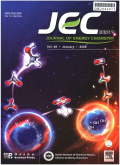- 钛学术文献服务平台 \
- 学术期刊 \
- 工业技术期刊 \
- 石油与天然气工业期刊 \
- 能源化学期刊 \
null
The origin of sulfuryl-containing components in SEI from sulfate additives for stable cycling of ultrathin lithium metal anodes
基本信息来源于合作网站,原文需代理用户跳转至来源网站获取
摘要:
In the light of wireless and non-fossil society based on portable electronics, electric vehicles, and smart grids, secondary batteries with higher energy density, faster charge, and safer operation are pursued persistently [1].Nowadays, commercial lithium (Li)-ion batteries have been practically applied in our daily life.However, the energy density of Li-ion batteries based on intercalation chemistry is approaching to the theoretical value due to the limited specific capacity of graphite anode (372 mA h g-1) [2].In order to further improve the energy density of secondary batteries, Li metal anode was revisited owing to its extremely high theoretical specific capacity (3860 mA h g-1) and low reduction potential (-3.04 V vs.standard hydrogen electrode) [3].Moreover, Li metal anode can be combined with different types of cathodes, such as intercalated cathodes (e.g., LiFePO4 and LiNi0.5Co0.2Mn0.3O2 (NCM523)) and conversion cathodes (e.g., sulfur and oxygen) to construct various next-generation battery systems [4,5].

推荐文章
期刊_丙丁烷TDLAS测量系统的吸收峰自动检测
带间级联激光器
调谐半导体激光吸收光谱
雾剂检漏 中红外吸收峰 洛伦兹光谱线型
不同盐度、温度及光照对漂浮浒苔生理生态的影响
浒苔
盐度
温度
光照
生理生态
期刊_联合空间信息的改进低秩稀疏矩阵分解的高光谱异常目标检测
高光谱图像
异常目标检测 低秩稀疏矩阵分解 稀疏矩阵 残差矩阵
内容分析
关键词云
关键词热度
相关文献总数
(/次)
(/年)
引文网络
引文网络
二级参考文献 (0)
共引文献 (0)
参考文献 (1)
节点文献
引证文献 (0)
同被引文献 (0)
二级引证文献 (0)
2018(1)
- 参考文献(1)
- 二级参考文献(0)
2020(0)
- 参考文献(0)
- 二级参考文献(0)
- 引证文献(0)
- 二级引证文献(0)
引文网络交叉学科
相关学者/机构
期刊影响力
能源化学
主办单位:
中国科学院大连化学物理研究所
中国科学院成都有机化学研究所
出版周期:
双月刊
ISSN:
2095-4956
CN:
10-1287/O6
开本:
出版地:
大连市中山路457号
邮发代号:
创刊时间:
语种:
eng
出版文献量(篇)
2804
总下载数(次)
0
期刊文献
相关文献
推荐文献
- 期刊分类
- 期刊(年)
- 期刊(期)
- 期刊推荐
一般工业技术
交通运输
军事科技
冶金工业
动力工程
化学工业
原子能技术
大学学报
建筑科学
无线电电子学与电信技术
机械与仪表工业
水利工程
环境科学与安全科学
电工技术
石油与天然气工业
矿业工程
自动化技术与计算机技术
航空航天
轻工业与手工业
金属学与金属工艺
能源化学2022
能源化学2021
能源化学2020
能源化学2019
能源化学2018
能源化学2017
能源化学2016
能源化学2015
能源化学2014
能源化学2013
能源化学2012
能源化学2011
能源化学2010
能源化学2009
能源化学2008
能源化学2007
能源化学2006
能源化学2005
能源化学2004
能源化学2003
能源化学2002
能源化学2001
能源化学2020年第9期
能源化学2020年第8期
能源化学2020年第7期
能源化学2020年第6期
能源化学2020年第5期
能源化学2020年第4期
能源化学2020年第3期
能源化学2020年第12期
能源化学2020年第11期
能源化学2020年第10期
能源化学2020年第1期

 免费查重
免费查重










